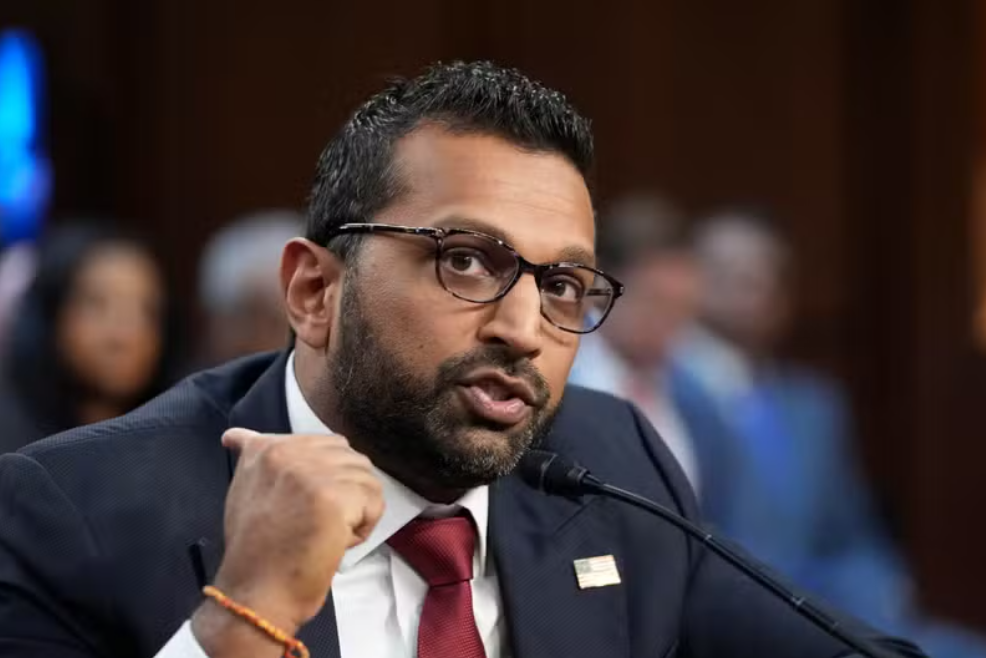Next, Defund the United Nations - WSJ
Feb. 11, 2025 at 1:36 pm
President Trump has cut funding to some egregious United Nations agencies and ordered a review of all funding for the U.N. and other international organizations. Executive orders cutting taxpayer funding for diversity, equity and inclusion initiatives and trans ideology won’t fully ensure the U.S. taxpayer isn’t paying for such programs without taking on the global deep state. These priorities are baked in to the institutional structure of international organizations that the U.S. underwrites.
Even the most innocuous-sounding international organizations have institutionalized woke ideology. Nearly every U.N.-affiliated organization seeks to make climate and gender issues (including abortion and transgenderism) an integral part of their work. DEI offices abound. The International Organization for Migration lists as among its central areas of activity “gender equality,” “environmental sustainability” and “reducing global inequalities.” It sponsors programs like “Strengthening Women’s Resilience in the Face of Climate Change in El Salvador.” The U.N. Commission on Human Rights promotes a variety of transgender propaganda campaigns, such as helping Nepalese “LGBTIQ+ writers to tell their own story.”
The U.N. Population Fund—whose budget Mr. Trump cut in 2017 because of its funding for abortion—says “Diversity, Equity and Inclusion is at the heart of UNFPA’s workforce.” In 2021, $1 million went to the International Labor Organization for job training for gays and lesbians in Brazil. In 2022, through the U.N. Development Program, U.S. taxpayers have funded a program called “Being LGBTI in the Caribbean.”
Apart from ideological absurdity, this leads to massive inefficiency, with the U.S. funding numerous entities with overlapping missions. The U.S. funds the U.N. Environment Program, the U.N. Convention to Combat Desertification, the International Union for Conservation of Nature, the Secretariat of the Pacific Regional Environment Program, the Global Environment Facility, the Commission for Environmental Cooperation, the Montreal Protocol and others. If that weren’t enough, the Global Fund for HIV, Tuberculosis and Malaria says “climate change is the largest global health challenge of the 21st challenge,” and thus part of its mission.
Other parts of the U.N. sound like a taxpayer-funded “1619 Project.” The Office of the High Commissioner for Human Rights, for which the U.S., as with most U.N. programs, is the lead donor, has called on Washington to surrender land to Native Americans, while the Special Committee on Decolonization regularly demands Puerto Rican independence.
If an America-first approach means anything, it should be that the U.S. won’t pay international bureaucrats to do what it forbids its own employees to do. Most federal workers are at least U.S. citizens, voters and taxpayers. Employees at international organizations generally aren’t, and Elon Musk’s Department of Government Efficiency should seek to cut U.S. contributions to these agencies by significantly more than it cuts the federal bureaucracy. Only about a sixth of U.S. spending goes to mandatory membership dues to organizations. The rest is voluntary.
DOGE should begin by ending voluntary contributions to agencies that have adopted DEI or gender ideology agendas. Federal law already requires defunding U.N.-affiliated international organizations that accept Palestine as a member state. The failure, since the Obama administration, to enforce this law has undermined American credibility at the U.N.
It is impossible to quit entities like Unrwa, which Mr. Trump defunded this week, because they are U.N. subsidiaries rather than free-standing entities. While defunding them is necessary, past aid cuts have been reversed by subsequent Democratic administrations. Such agencies can ride out a liquidity squeeze.
Durable reform involves ending the U.S. relationship, as Mr. Trump has already done with the World Health Organization. Because these are treaty organizations, rejoining would be subject to congressional approval. DOGE and the State Department should review U.S. membership in these organizations with the same determination to make permanent cuts that they have shown domestically. Take one example: The International Labor Organization has been around since the League of Nations, despite massive changes in the global economy and labor relations. But the ILO has kept up with the times by embracing DEI and LGBT issues.
The Trump administration can also cut U.S. contributions to the U.N. peacekeeping system. Peacekeeping is one of the biggest parts of the U.N.’s budget, and the U.S. pays the lion’s share. Unlike other U.N. programs, peacekeeping operations must be regularly reauthorized by the U.N. Security Council, and the U.S. can veto them. Missions to be vetoed should include the U.N. Interim Force in Lebanon, which has shielded Hezbollah, and the U.N. Mission for the Referendum in Western Sahara, whose function has been made moot by U.S. recognition of Morocco’s sovereignty over Western Sahara.
Peacekeeping is the jewel in the crown of the U.N. system, evoking nostalgia for the original vision of the U.N. as an army that stops bad guys around the world. Starting by canceling a few of these missions may be one of the few ways the Trump administration could show the secretariat that there will be consequences for failing to reform.
Mr. Kontorovich is a professor at George Mason University Scalia School of Law and a senior research fellow at the Heritage Foundation.
